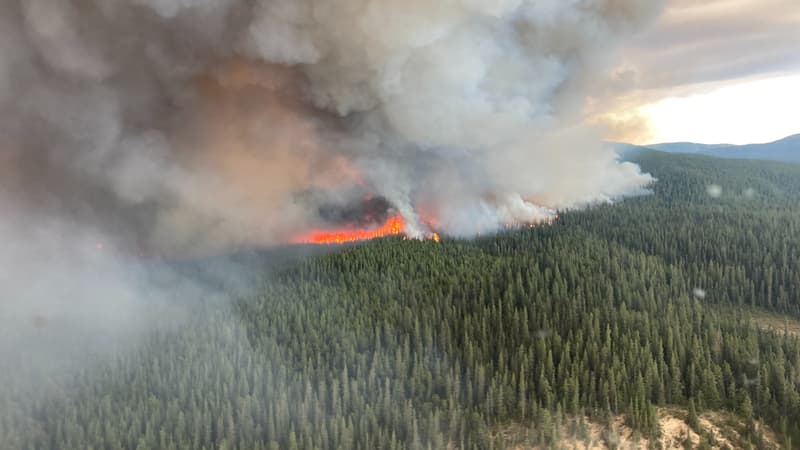A firefighter from western Canada died this Thursday in the field during an intervention against one of the mega-fires that have ravaged the country for weeks, her union announced during the night from Thursday to Friday.
This is the first firefighter death since the start of this historic fire season in Canada, with more than 900 fires currently active, including more than 570 out of control.
“It is with a heavy heart that our union mourns the loss of a family member who was killed today fighting a bushfire outside Revelstoke,” BC, the BCGEU union.
An open investigation
The firefighter “was injured while responding to a bushfire,” the British Columbia Fire Department (BCWS) said by email, without elaborating. The last firefighter killed on the ground in the province was in 2020.
Federal police and the provincial occupational health and safety agency launched an investigation.
After recalling that the situation remains “extremely serious”, Prime Minister Justin Trudeau regretted this “heartbreaking” news and stressed that “we must never forget the risks these heroes take every time they are in danger.”
The number of fires continues to increase in the country, particularly in the west, where several hundred sources of fire have been recorded in just a few days, mainly caused by electrical storms.
“A very dangerous job”
British Columbia, which recently ordered new evacuations, requested the assistance of an additional 1,000 international firefighters.
But “it’s very difficult to get additional firefighting capabilities,” Cliff Chapman, a spokesman for the province’s fire department, said Thursday.
“It is a very dangerous job. The conditions we find ourselves in make it even more dangerous for our staff who are working 14, 16, 20 hour days trying to do everything they can to keep these fires out of strategic areas,” he said.
And the situation is not going to improve with “hot and dry weather expected in the coming months,” BCWS’s Sarah Budd told AFP: “We don’t expect any respite from the weather.”
With 9.7 million hectares already burned throughout the country – that is, 11 times the average for the last decade – the absolute annual record dating from 1989 has already been far surpassed.
The east and west of the country are affected simultaneously and some provinces not used to fires are also affected. Just one of the forest fires that hit northern Quebec engulfed more than a million hectares.
Canada, which due to its geographical location is warming faster than the rest of the planet, has faced extreme weather events in recent years whose intensity and frequency have been increased by climate change.
Source: BFM TV


